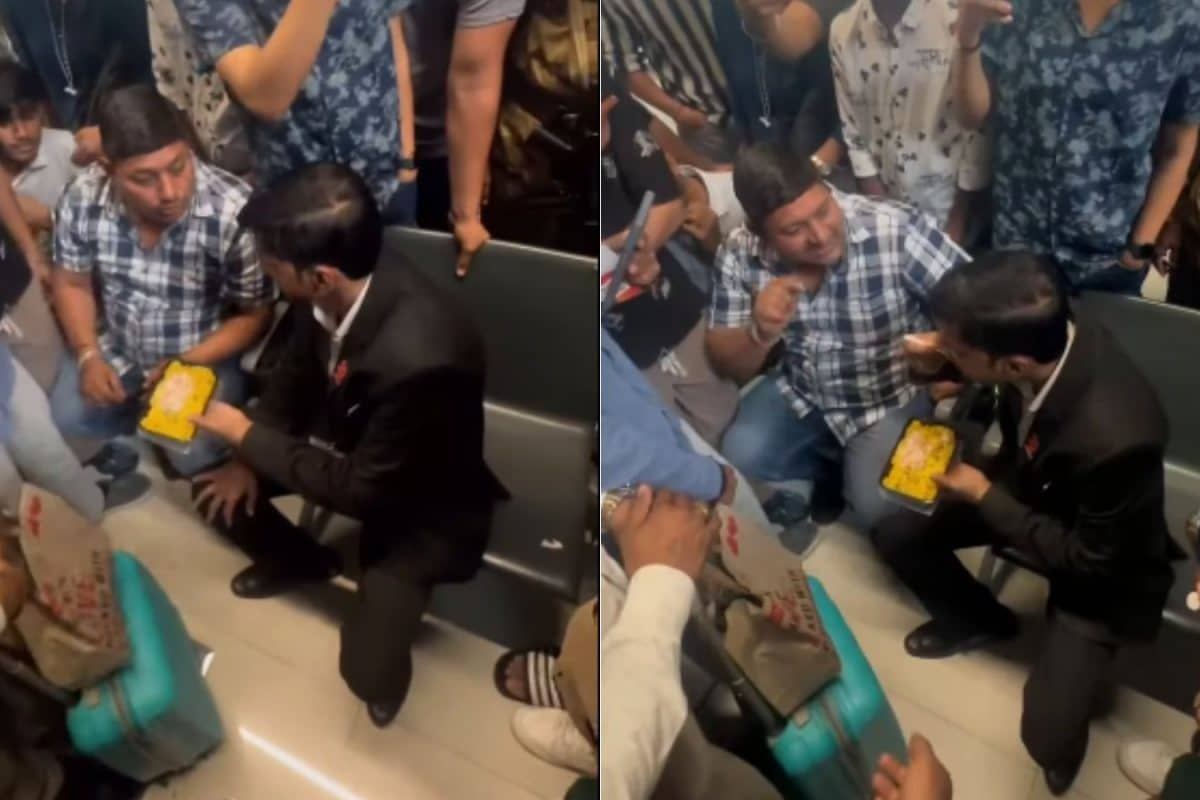

A recent incident at Pune Airport has brought the quality of airline food sharply into focus, after passengers on a delayed SpiceJet flight protested the substandard meals provided and, in a dramatic turn, allegedly forced airline staff to consume the same food.
The incident occurred when SpiceJet flight SG-8124 from Pune to Delhi faced a significant delay of approximately seven hours. Frustration mounted among the passengers, who were already weary from the extended wait. The situation escalated when the airline provided meals that passengers deemed to be of unacceptable quality, with some describing the food as stale and unappetizing.
Videos circulating on social media depict scenes of heated confrontation between passengers and airline staff. Passengers can be heard questioning the quality of the food, with some claiming it was inedible. In a particularly striking moment, some passengers are seen urging a SpiceJet staff member, identified as a deputy manager, to eat the meal himself. The passengers seemed to want the staff to experience firsthand what they were being offered.
The incident has sparked a debate about the responsibility of airlines to provide adequate and palatable food during flight delays. Regulations typically mandate that airlines offer refreshments to passengers when flights are delayed beyond a certain duration, often two hours. However, the quality of these provisions can vary significantly, and this incident highlights the dissatisfaction that can arise when passengers feel they are not being treated fairly.
Some observers have criticized the passengers' behavior, arguing that forcing airline staff to eat the food constitutes harassment and public bullying. They contend that ground staff are not responsible for catering decisions or flight delays and are often caught between disgruntled passengers and airline policies. Instead, focus should be directed toward the airline's management and catering services. It is also argued that such actions create a hostile environment for airline employees who are simply trying to manage difficult situations.
Others, however, defend the passengers' actions as a form of protest against poor service and a lack of accountability. They argue that the airline's failure to provide decent meals after a lengthy delay warranted a strong response. It also brings up the Directorate General of Civil Aviation's guidelines, which state that airlines are bound to serve refreshments to flyers if a flight is delayed by more than two hours. The passengers may have felt that their actions were justified in light of the airline's apparent disregard for their well-being.
Regardless of differing viewpoints, the incident serves as a reminder of the importance of customer service and the need for airlines to address passenger concerns promptly and effectively. Airlines should ensure that catering services provide meals that meet acceptable standards of quality and hygiene, especially during delays. Moreover, airlines need to improve communication with passengers during disruptions, providing timely updates and addressing their needs and concerns in a professional and empathetic manner.